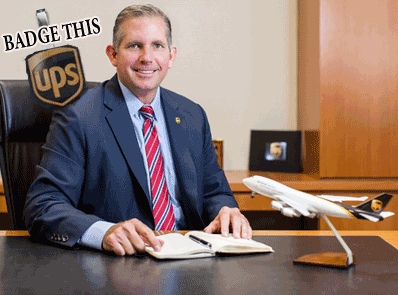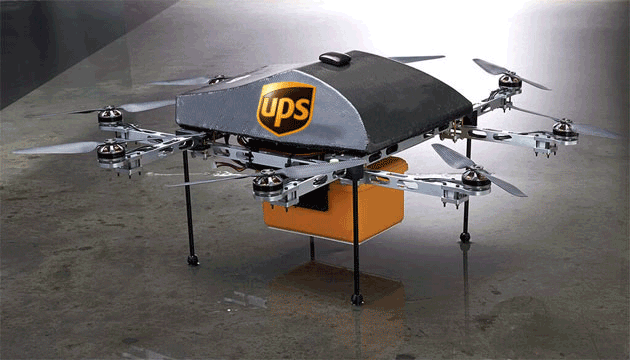|
Peak Season Back In Primetime

Cold War Conservative
Prime Minister of Great Britain (1957-63) Harold Macmillan delivered a
speech, which became known as “Winds of Change,” to the South
Africa Parliament on February 3,1960.
He acknowledged the coming decolonization
of Africa as the British Empire was falling apart there.
“The wind of change is blowing through
this continent. Whether we like it or not, this growth of national consciousness
is a political fact,” Macmillan said. The British Prime Minister
also once famously concluded, “A week is a long time in politics.”
Well, a year is a long time in air freight.

Jeff
McCorstin, president of UPS Global Freight Forwarding in Asia Pacific,
forecasts that 2014 will be the first year since 2009 that the air
freight business will see a proper peak season.
“I would say last year we had a mini
peak, but this year we expect a proper peak season,” he insists.
|
The last time FlyingTypers
caught up with Jeff McCorstin, president of UPS Global Freight Forwarding
in Asia Pacific, he was downbeat on air freight due to excess supply and
sluggish demand. Fast forward a year and the veteran Big Brown executive
is far more upbeat, thanks to the economic resurgence in Europe and the
U.S., and more sensible capacity management strategies by carriers.
Last year the straight-talking McCorstin
predicted demand would only expand by 0.9 percent in 2013 after contracting
in both 2011 and 2012, but the view in Q3 2014 is altogether more optimistic.
“In 2011, 2012, and 2013 there was
hardly any growth,” he said. “But in 2014 we are seeing much
stronger performance, and cargo volumes are up about 4.6 percent globally,”
he said.
He forecasts that 2014 will be the first
year since 2009 that the air freight business will see a proper peak season.
“I would say last year we had a mini
peak, but this year we expect a proper peak season,” he explained.
“Over 2008-13, I think overall demand
growth for air cargo came in at about 1 percent, but this year we’ll
have a peak. As a strategic logistics provider, we’re already talking
to our customers and preferred airline partners to ensure we have the
right capacity. We can also access UPS’ own integrated network.”
According to McCorstin, the improvement
in air freight markets is occurring despite the ongoing ‘miniaturization’
of cargo, the use of Cloud IT systems, and the near- and re-shoring strategies
of some manufacturers—all factors which stifle demand for air freight.
Indeed, he believes the modal shift away from air towards ocean, and from
Asia to Europe also moving to rail, is continuing. “Even within
air freight products there has been a strong shift to deferred or consolidated
services,” he added.
Rather, the recovery in demand is down to
manufacturers boosting output in Asia in response to improving demand
from Europe and the U.S. “A healthier global economy is driving
air cargo demand,” he said. “UPS experienced pretty robust
second quarter revenue and volume growth across our Supply Chain, Freight,
International Package and Distribution businesses. UPS Supply Chain and
Freight also saw double-digit operating profit growth. We expect this
growth to continue.”
However, while UPS Forwarding’s Q2
results noted strong improvements, market pricing on key Asia to U.S.
lanes continued to put pressure on rates for the international air freight
industry.
McCorstin expects better alignment between
supply and demand to start improving margins for cargo airlines in the
future. He cites the reduction of freighter capacity by carriers in the
face of excess bellyhold space and the demise of some freighter operators
as evidence that the market will self-correct.
“More medium and small freight operators
have left the market,” he said. “The larger passenger and
freighter operators have also parked capacity so airlines are helping
balance supply and demand by not moving freighters uneconomically.
“There is a lot more wide-bodied capacity
coming and I think these will increasingly be used to meet the needs of
the freight market and there will be less reliance on freighters.”
Sky King

Drone
On . . . UPS is working on drone delivery too
(see Google article this issue).
Sources familiar with the UPS plan
say it has been testing and evaluating different approaches to
drone delivery.
“The commercial use of drones
is an interesting technology and we’ll continue to evaluate
it,” UPS said.
“UPS invests more in technology
than any other company in the delivery business, and we’re
always planning for the future.”
|
|





